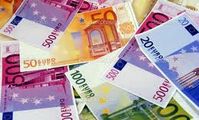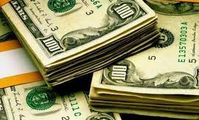The Growth Story Continues

FROM A MERE 3.1% in FY 2002/03, Egypt's real GDP growth stood at 7.1% in 2006/07 and accelerated to 7.5% in the first half of 2007/08. That's not just better than the average for the Middle East and North Africa (MENA) region — it's some two percentage points above the global average, too.
Today's rapid economic growth is the product of hard work in the private sector — and of the bold economic reforms implemented by the new government that took office in July 2004 under the leadership of Prime Minister Ahmed Nazif. With a focus on maintaining macroeconomic stability, the new Cabinet set out to create jobs by giving the private sector the lead in economic activity. The Cabinet also maintained price stability through fiscal discipline and prudent monetary policy as well as implemented significant reforms in the financial sector.
Nearly four years on. those policies have born fruit as the Egyptian economy has been better integrated into the nexus of global trade and investment. Today, Egypt's public debt structure is in significantly better shape, and policy makers have the breathing room they need to begin improving government services and redesign social policies.
Initially dubbed too ambitious, today, the government's reform policies are being heralded by analysts at home and abroad as a textbook example of how to reform an economy.
The Power of Diversity
While some so-called "economic renaissances'" have been based on less-than-sound fundamentals, Egypt's growth has been driven by a broad base of non-petroleum sectors, including construction (posting 15.7% growth in 2006/07), communications and information technology (14.1%), tourism (13.2%), trade (8.3%) and manufacturing (7.3%).
Indeed, the Egyptian economy is itself well diversified, with industry accounting for 32% of GDP in 2006/07 while services contributed 54%. Egypt's services sector is also one of the most competitive in the region and beyond: According to UNCTAD figures for 2007, Egypt is among the leading developing-country exporters of financial services as well as personal, cultural, recreational, transportation, travel, communications, construction, computer and information services.
Companies in Egypt and abroad have responded with enthusiasm to Egypt's new investment climate. Between 2003/04 and 2006/07. private-sector investment as a percent of GDP nearly doubled to 13.5% from 7.6%. Little wonder the country has netted historically unprecedented levels of foreign direct investment (FDI) inflows: Egypt took in USS 11 billion in 2006/07, up from USS 509 million in 2000/01.
Macroeconomic Stability
Looking forward. Egypt's high rate of growth will be supported by macroeconomic stability cushioned by a decline in the budget deficit to less than 7.5% of GDP in 2006/07 compared to 10.5% in 2002/03. The government is committed to a medium-term fiscal consolidation plan that targets the reduction of the budget deficit by one percentage point annually over the upcoming five years. The target: to reduce by half the budget deficit by 2011.
Despite an inflationary surge between March 2006 and March 2007, inflation has remained moderate. The brief wave of inflationary pressure was triggered by higher global food and commodity prices, supply shocks triggered by avian flu as well as by demand-side factors as a result of aggregate demand being boosted by high growth. A key concern of monetary policy has been the movement toward an inflation-targeting frame work which will anchor monetary policy once fundamental prerequisites are met.Policies adopted on the foreign exchange front have brought discipline to the market, particularly after the December 2004 creation of the Central Bank of Egypt's inter-bank foreign exchange system led to the convergence of official and unofficial market rates.
Structural reforms have also accelerated. A reduction in tariffs brought Egypt's average weighted tariff level to 6.9% in February 2007. down from a high of 14.6% in August 2004. The new personal and corporate tax code introduced in July 2005 reduced tax rates by up to 50%, cutting the maximum corporate and personal tax rates to 20%.
Privatization has also gained momentum, with 80% of the shares of the Bank of Alexandria, Egypt's fourth-largest state-owned bank, being acquired by Italy's IMI Sanpaolo in 2006. Among other high-profile stakes now up for sale to qualified bidders is the Banque du Caire, the nation's third-largest state-owned bank.
the Central Bank of Egypt has created a sounder and more efficient banking system by hiking capital adequacy regulations, encouraging mergers and acquisitions, developing its regulatory and supervisory apparatus and addressing the legacy of non-performing loans.
Meanwhile, Egypt's external account strengthened with net international reserves increasing to USS 30.2 billion in January 2008, up 109.7% from USS 14.4 billion in June 2002. The nation's external debt position also remains favorable as reflected by relatively low debt and debt-service ratios. External debt to current account receipts has gone down to more modest 70.5% in 2006/07 from 137% in 2000/01.
With a pro-business government firmly in command, the emphasis of the country's ongoing reform program is to keep real GDP growth at a sustainable rate of above 7%. In light of Egypt's competitive advantages in sectors including manufacturing and services — and with reforms continuing, solid domestic growth and favorable external conditions — global economists agree: The outlook for 2008 and beyond is very promising.
Is it any wonder, then, that Egypt was recently declared the World Bank's "Top Reformer" in its Doing Business 2008 report?Your Rating:
Overall rating: 0.000
Totally voted: 0
Comments
Weather in:
Exchange Rates
-
IMF loan expected next month
Apr 22, 2013, rating: 3.000, 3 votes Egypt may secure an International Monetary Fund loan agreement in about amonth, state news agency MENA reported, quoting "informed" sources ...
Egypt may secure an International Monetary Fund loan agreement in about amonth, state news agency MENA reported, quoting "informed" sources ...
-
Egypt received 11 million tourists in 2012 and aims to boost that number to 14 million in 2013.
Jan 22, 2013, rating: 3.000, 2 votes
Egypt received 11 million tourists in 2012 and aims to boost that number to 14 million in 2013.
-
Egypt limits travelers leaving country to US$10,000 in cash
Dec 26, 2012, rating: 3.250, 4 votes Egypt has banned travelers from carrying more than US$10,000 in foreigncurrency cash in or out of the country ...
Egypt has banned travelers from carrying more than US$10,000 in foreigncurrency cash in or out of the country ...
-
National Coalition on Climate Change for Egypt is born
Nov 30, 2012, rating: 5.000, 1 votes The global COP18 conference on climate change opens in Doha Monday.About 17,000 participants from all over the world ...
The global COP18 conference on climate change opens in Doha Monday.About 17,000 participants from all over the world ...
-
Judgment for sexual harassment
Nov 14, 2012, rating: 3.600, 5 votes A man was sentenced to two years in prison and fined LE 2,000 for sexually harassing a woman, an ...
A man was sentenced to two years in prison and fined LE 2,000 for sexually harassing a woman, an ...
-
Scientists are enthusiastic about hydrogen's green applications
Nov 13, 2012, rating: 4.000, 3 votes
As fossil fuel reserves decrease, many countries are turning to hydrogen as one of the main sources of alternative energy ...








